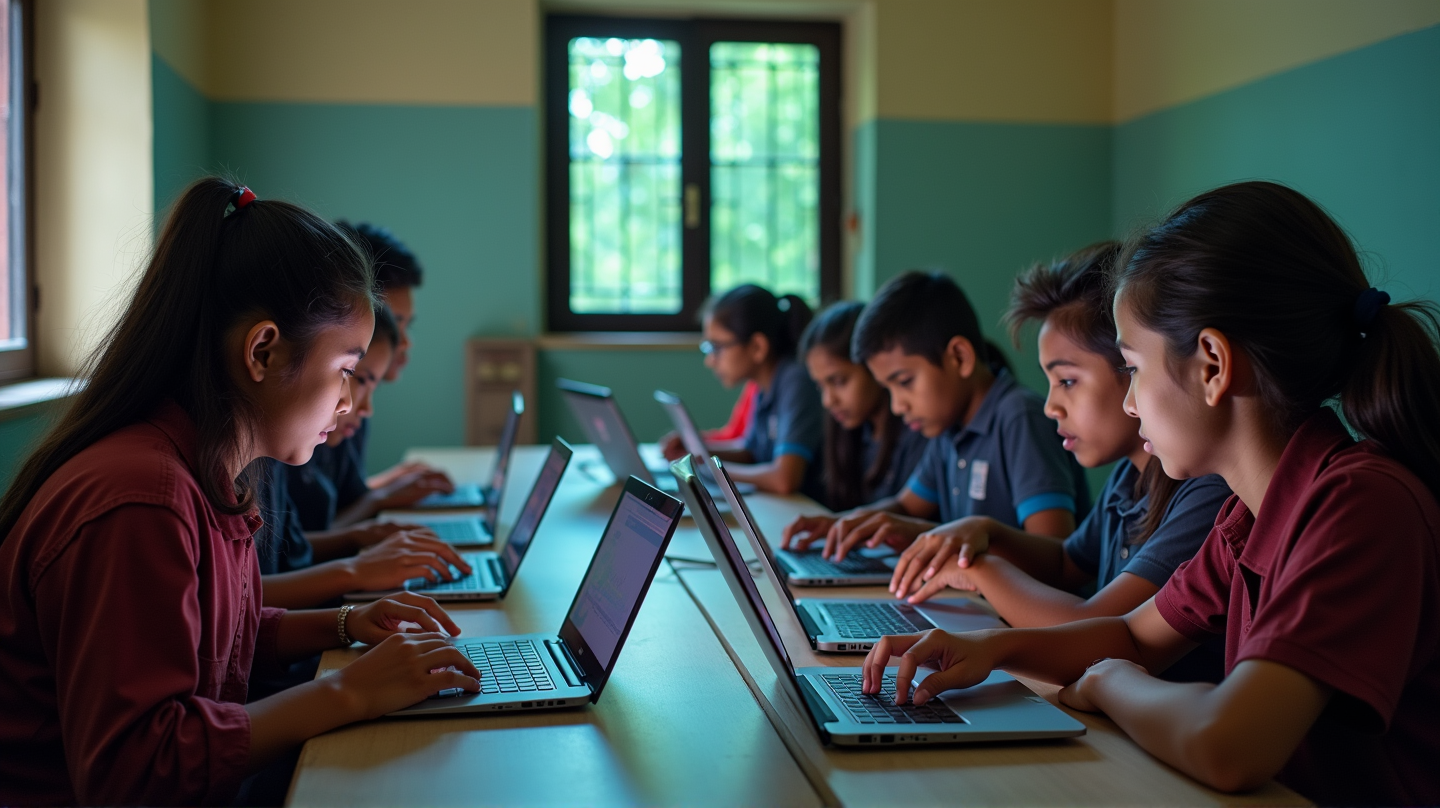Unlocking Math Proficiency in India Through Digital Laptops: A Game-Changer
Discover how India's Tamil Nadu Free Laptop Scheme improved math proficiency and closed gender and economic gaps among students.

Introduction to Digital Learning
In a leap towards bridging educational divides, India’s Tamil Nadu Free Laptop Scheme (TFLS) has revolutionized the academic landscape by equipping students with digital tools to propel their educational journey. It’s not just about handing out laptops; it’s about creating equal opportunities and promoting foundational math proficiency among students, particularly those from economically disadvantaged backgrounds.
The Impacts of the Tamil Nadu Free Laptop Scheme
Since its initiation in 2011, TFLS has distributed over five million laptops. This initiative particularly targeted students in government and government-funded institutions, aiming to close the existing digital divide. The results have been profound, showcasing noticeable improvements in foundational math skills. According to Nature, students with access to laptops experienced enhanced comprehension, spent more time engaged in learning, and relied less on private tuition.
Bridging Economic and Gender Divides
An important facet of the TFLS was its success in narrowing gender and economic disparities in education. Economically challenged students obtained substantial benefits from laptop access, which was evident in their improved study habits and learning outcomes. Gender-wise, while both boys and girls demonstrated increased math proficiency, boys showed notable improvement, thereby reducing the educational gender gap.
Mechanisms Driving Educational Success
The TFLS has also positively influenced other educational outcomes. Students not only saw improved math proficiency but also better language comprehension—skills crucial for navigating digital content. This, coupled with increased self-study and school-based learning hours, suggests that laptops have instilled a greater sense of motivation and educational discipline among students.
The Role of Technology in Educational Equity
Despite the high costs associated with implementing a scheme like TFLS, the potential long-term benefits and efficiencies cannot be overlooked. The initiative serves as a transformative tool, preparing students for a future where digital literacy is as significant as traditional literacy.
Conclusion
The Tamil Nadu Free Laptop Scheme has successfully shown that access to digital resources can transform educational landscapes, even in economically strained environments. Not only does it equip young minds with essential skills for the modern world, but it also levels the playing field, ensuring all students have the same opportunities to thrive. As highlighted by its promising results, this initiative is a beacon for similar projects globally, advocating for tech-driven educational reforms.
This study and its profound results on the Tamil Nadu Free Laptop Scheme reveal a potent stride towards achieving educational equity and illustrate the requisite importance of digital literacy in achieving academic and professional success in today’s world.





